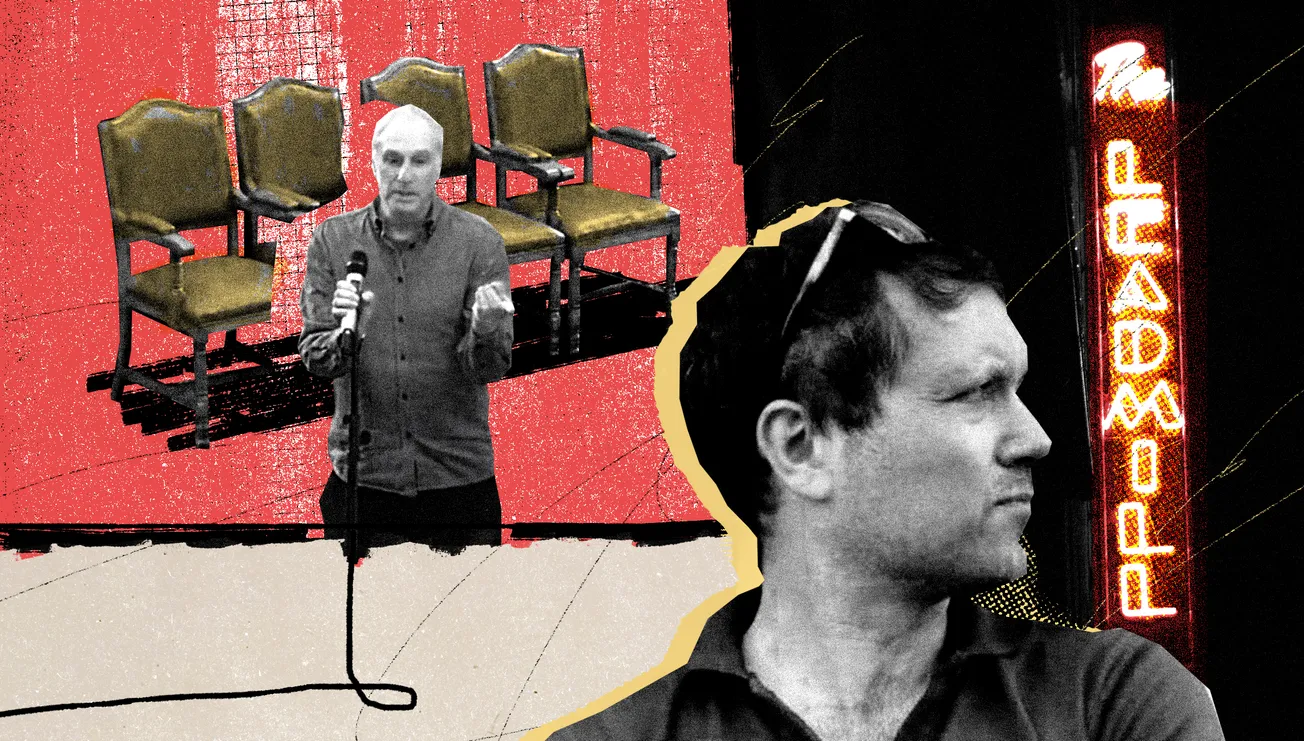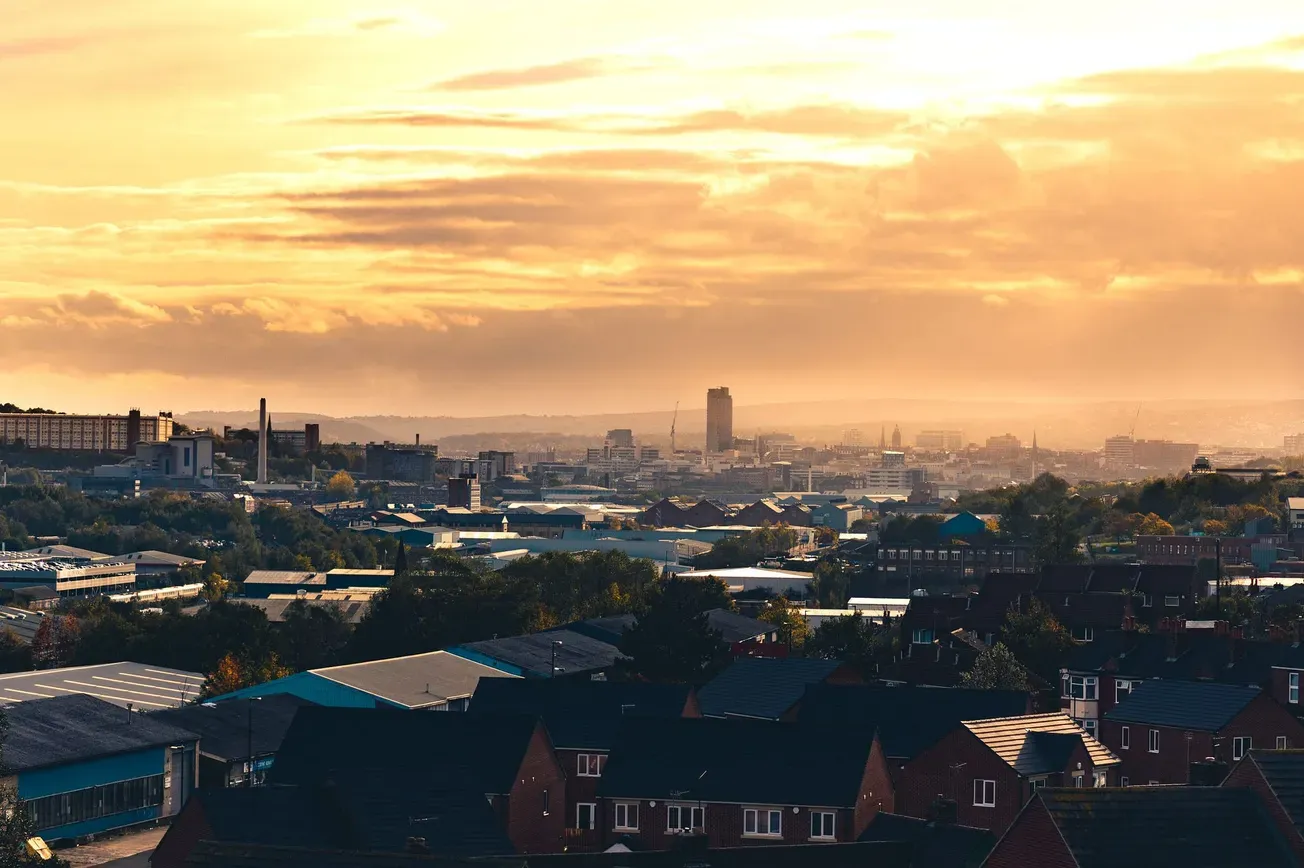When the ten members of Sheffield City Council’s new cabinet tentatively logged on for their first Zoom call together in May this year, no one knew quite what to expect. The cabinet was now called the cooperative executive (or “coop exec” to those in the know), but it was still the same thing — a small group of senior councillors who take most of the important political decisions in the city. Ever since the leader and cabinet structure was created in the mid-2000s, the group had been drawn from just one party. But this time voters had other ideas.
The local elections a few weeks earlier had robbed Labour of its majority on Sheffield City Council for the first time in 10 years. They lost eight seats in total on the night — including the Hillsborough ward of their new leader Bob Johnson. His was one of five Labour seats to go Green on the night, with the other three being won by the Liberal Democrats. It was a chastening night for Labour and a triumphant one for the Greens. But the unexpected result left the council in no overall control and made some form of coalition inevitable.

At the same time, voters in Sheffield had shaken the electoral kaleidoscope again by voting to change the very way the council takes decisions. A so-called modern committee system where power is more widely shared among the council’s 84 representatives is now going to replace the current leader and cabinet structure, but not for another 12 months. The two results had turned Sheffield politics upside down and it was up to the city’s leaders to make sense of them.
The political calculus wasn’t easy. Sheffield politics has traditionally been a fight between Labour and the Lib Dems, making the two parties bitter enemies. This made the Greens kingmakers, but they and Labour had been on opposite sides of the long-running tree protests, one of the most acrimonious battles the city had seen for a generation. In the end the Lib Dems pulled out of negotiations, leaving Labour and the Greens to agree to an uneasy truce.
So it was with some apprehension that Sheffield’s new cooperative executive entered their very first Zoom call with each other three months ago. According to multiple well-placed sources The Tribune has spoken to in recent weeks, that sense of mistrust has not yet gone away. And several big issues on the horizon look set to test the new relationship still further.
‘Can I trust them?’
It probably shouldn’t be a surprise. Several Labour members of the current cooperative executive were also in the cabinet when the tree protests were at their height in 2017. What happened on Rustlings Road (when a team from the council’s contractor Amey arrived in Endcliffe in the dead of night in a bid to chop down trees while people slept) is still fresh in the memory. One of the current Green executive members was even briefly locked up for her part in the protests.

“There is an understandable level of wariness there,” one senior Green councillor told The Tribune. “You are always thinking, can I trust them?” The two parties’ turbulent recent history is undoubtedly making relationship-building more difficult, but personalities come into it as well. The councillor praised (leader) Terry Fox and (deputy leader) Julie Grocutt’s attitude to the cooperative executive so far, but said relationships with others — including Jayne Dunn and Cate McDonald — were more difficult.
The Greens also observe that the “siege mentality” that they say had developed under the last Labour administration — both from councillors and officers — has not entirely dissipated. Green executive members feel they are being kept away from sensitive issues such as the planned tree enquiry and the controversial SCC Streets Ahead public private partnership with Amey which led to it.
“We still haven’t got a chair for the tree enquiry but the campaigners deserve answers,” said one senior Green councillor. “What confidence can we have in things like the tree archive when there is still all this secrecy around FOIs [Freedom of Information Act requests]. Most of the main people have been conveniently moved on or retired and pieces of paper related to Rustlings Road have been lost. We need to know who signed off on that insane plan.”
‘Willy-waving’
Terry Fox and [Green leader] Douglas Johnson reportedly meet in person every week to oil the wheels of the two parties' relationship. But a recent interview with The Star showed just how far this trust-building process has to go. Councillor Johnson, who is the executive member for climate change, environment and transport, told business editor David Walsh the Greens would not be “pushed around” by their coalition partners. A particular bone of contention was the controversial pedestrianisation of Pinstone Street, which the Greens see as an essential first step in reducing Sheffield’s reliance on car travel.

Just weeks beforehand, Terry Fox had told councillors he would like to see the barriers on Pinstone Street, Leopold Street and Surrey Street removed and the pedestrianisation scheme rethought, opening the major city centre road up to buses again at least. He said:
If I could get a saw I would go and cut every bloody gate on Pinstone Street, on Leopold Street, on Surrey Street. If you walk round this city and see gates across roads, what does that say to you? It doesn’t say that the city is open – and it is.
A senior Labour source acknowledged that the two parties were not “on the same page” on the scheme, but said that it wasn't a “do or die issue in the grand scheme of things”. But despite the scheme’s marginal implications for climate change and pollution, for the Greens it has symbolic importance as another step in reclaiming the city centre for people rather than cars. “Any sense that we’re backtracking on that would be political suicide for us,” said one.
One Labour backbencher dismissed Councillor Johnson’s intervention as “willy-waving”. As well as working together, parties in coalition — especially the “junior” partner — need to carve out their own identities if they are not going to be too closely identified with compromise positions that ultimately please no one.
“There has been no pushing around,” added the backbencher. “But Terry recognises the realpolitik of where Douglas is.” But this analysis is disputed by the Greens. “Labour just doesn't get it,” said a senior Green councillor. “We’ve got to get rid of cars from the city centre. We don’t have a choice.”

While Labour is broadly on board with the Greens’ environmental agenda, the parties clearly differ on the pace of change. A senior Labour source said that while the Greens want to move faster on reducing carbon emissions, some in Labour worry that those who will be asked to pay most are those who can least afford it. Examples include the Greens’ desire to remove all gas boilers from council houses and reduce the city’s reliance on energy from the Bernard Road incinerator.
But despite some disagreements, the source said they thought the relationship was working well at the moment, pointing to the joint statement the two parties put out last week on refugees from Afghanistan. They also said Green concerns over council house gas boilers were not ultimately going to slow the council's building problem and that even Paul Turpin (Green executive member for inclusive economy, jobs and skills) acknowledges that the incinerator plan wasn’t going to happen in the short or medium term. “As long as common sense prevails, I can’t see it being a problem,” they added.
‘They just trashed it’
If the initial plan had come off, cooperative executive relationships could have been even more difficult. Multiple sources told The Tribune that the original idea was for the Liberal Democrats to be involved as well. A so-called “Rainbow Coalition” made up of Labour, the Lib Dems and the Greens was seen by some as the ideal way of preparing for the more collegiate committee system. Labour also viewed it as a way of coming together over Covid, but it never got off the ground.
A senior Green source described the Lib Dems’ attitude towards the plan as “immature”. “They just trashed it,” they said. “I don’t really understand it. It could have been great training for the committee system but because they couldn’t present it as their idea they walked away. Shaffaq [Mohammed, Lib Dem leader] has another job outside politics and gets £8,000 for being leader of the opposition, so maybe that was part of his thinking as well.”

We’ve been told that both the Greens and Labour wanted the Lib Dems to be part of the new executive, and some people in both parties still do. “They thought it was going to be a disaster and wouldn’t last three months,” a Green insider told us. “Well it’s been three months now.” But for some in Labour, the Lib Dems not being involved is a relief. “You can’t trust them,” said one senior Labour councillor. “The leaflets they put out are full of lies. Lots of the Greens used to be Labour people so there is more common ground there.”
Despite the tensions over coalition-building and the need to focus on Covid, a Labour councillor we spoke to said the transitional committees intended to lay the groundwork for the committee system were working well so far, despite some deep misgivings about the plan on the Labour side. The senior councillor told The Tribune that they believed many people were now realising the massive cost implications of the new system. “It will mean more meetings, more officer time and it will slow the whole process down,” they told us. “It will add a few million pounds to the council budget that we can ill afford at the moment.”
“I don’t think voters knew what they were voting for and we didn’t do a good enough job of explaining it to them,” the source continued. “I was in favour of devolving down decisions and funding like with the LACs (local area committees). But backbenchers are realising they are going to have to do a lot more work and we don’t want councillors from Dore and Totley or pressure groups making decisions for people in the rest of the city.”
‘It’s difficult to fall out over Zoom’
On Monday, the new coalition will have been in office for 100 days. To mark the occasion, Leader Terry Fox released a video in which he detailed the council’s achievements in that time — and talked about some of the challenges they had faced as well. In the same video he also appealed for people to stop him in the street for a chat — now that the city is emerging from its long Covid hibernation — to tell him what they think of how they’re doing.

The fact that human element has been missing from our politics over the last 18 months must in some ways have made the coalition’s task that much harder. One senior Green councillor said they thought the already difficult challenge of building working relationships across long-established political divides had been further hindered by having to rely on Zoom meetings for so much of the past few months.
But the senior Labour councillor we spoke to had a different take. They suggested that the virtual meetings might actually have been a blessing in disguise for the council, and that the real fireworks might begin when more regular face-to-face meetings begin in the next few months. “It’s difficult to fall out over Zoom,” they said. “You have to wait your turn to speak. It might be different when we get in the Town Hall.”

Comments
Sign in or become a Sheffield Tribune member to leave comments. To add your photo, click here to create a profile on Gravatar.







